The DRM Dilemma
In this in-depth GameSpot feature--DRM Dilemma--we look at how digital rights management works in games, the controversies surrounding recent titles, and the thoughts and reactions of developers and gamers alike to find out where the future of DRM lies.
Few topics have the power to divide the game industry quite like digital rights management (DRM)--the technologies, copy protection, and anti-piracy measures used by companies to manage the right of use of their digital products. Everyone has an opinion when it comes to DRM, and it’s rarely a neutral one. Gamers get hot under the collar about its restrictive nature, publishers wax lyrical about its ability to stop piracy and improve revenue, while developers either renounce or defend it. So who is right? Certainly, DRM is not without its benefits, nor without its faults. But is DRM becoming too complex and restrictive, or are these measures necessary in a climate of increasing game piracy? Is it contributing to the decline of PC gaming and spurring on a rising dissatisfaction among gamers? To find the answers to these questions, GameSpot AU went to the source. In Part One of our DRM feature, we explore the history of DRM, how it works, its level of necessity and the games that have caused recent controversy.
In Part Two--which will go live next week--we speak to game publishers, indie developers and a group of gamers that the United States Department of Justice refers to as “the oldest game software piracy ring on the internet” to gauge their thoughts on DRM, its effectiveness in stopping piracy and its oft-quoted ability to instil mistrust in gamers and harm gameplay experiences. Finally, we’ll look at the future of DRM and its effectiveness in a market geared towards digital distribution.
Digital Rights Management
DRM is a heavily debated topic, both in and out of the gaming community. The problem most gamers have with DRM is a constant feeling that, as a copy protection system, it’s unfair to them as consumers. But what is it exactly that they object to? Is it the restrictions, inconvenience and faults of DRM? Or are their objections based more on principle, because they feel cheated and abused by a product they legally own? Before those questions can be answered, it’s necessary to understand what DRM is, and how it works.
DRM is an umbrella term that encompasses technologies and copy protection measures put in place by copyright holders to manage the use, installation, copying and performance of digital content and devices. Although copy protection and anti-piracy measures are only designed for the purpose of making piracy more difficult, these also fall under DRM. In other words, DRM is a way to stop the unauthorised use, duplication and manipulation of whatever the copyright holder is trying to protect, be it a video game, DVD, music CD, digital files, etc. It’s also a way to protect the financial interests of a company in regards to intellectual property. Unless it becomes intrusive and restrictive, it’s easy to understand why at its core DRM is necessary--artists must protect their intellectual property. Without this protection, they can be deprived of the right to make money. From this comes the concept of licensing--for example, when you buy a CD, DVD or video game, you pay for the right to use the intellectual property, not the right to own it.
DRM in video games works in a number of ways. One of the first forms of DRM appeared in early PC adventure games such as Police Quest, where code wheels and quizzes often popped up, referring players to the game’s manual to ensure they were playing a legitimate copy of the game. Today, game consoles have built-in copy protection measures that prohibit them from reading anything but authorised and legally printed game discs. As detailed in GameSpot AU’s piracy feature, Copycats, circumventing these protection measures via mod chips is illegal in Australia. With constant firmware upgrading, publishers like Microsoft, Nintendo and Sony can constantly ensure that their consoles’ copy protection measures are upheld even when users connect to the internet.
PC gaming, however, still remains problematic for publishers. Game discs themselves have to make up for the lack of copy protection on the system they’re being installed on; the subject of contention for gamers is the measures taken by publishers in order to do this. There are a number of ways DRM on PC games works. The first is online activation, which requires the user to activate the game online when it is first installed. Sometimes a game will also require the user to go online every once in a while so it can check whether the activation is still valid, and in some cases, games require the player to stay online at all times while playing. The second method is install limits. This form of DRM restricts the number of systems the game can be installed on. For example, some publishers may allow a game to be installed only three times. This benefits publishers firstly by reducing piracy, and by blocking sales in the second-hand market (which they do not make a profit on). Serial numbers are another form of DRM, requiring the user to enter an alpha-numeric key during installation to authorise the game, as are disk checks, which hunt for physical defects in the game disc to verify a legitimate copy. The latter method requires users to have the game disc in the drive at all times during play, and can sometimes slow down access to the game while the check is performed. There is also "quiet" DRM, which requires users to sign up to online accounts in order to access all features of the game--an online distribution system such as Steam is a good example of this.
Click on the Next Page link to see the rest of the feature!
There are a number of known problems associated with DRM systems for PC games. Most notably, hardware--especially older hardware--can sometimes have problems reading DRM and as a result will not allow the game to work; in other instances, DRM systems can slow down gameplay and in some cases cannot be removed from a hard drive, even after the game is uninstalled. This problem first surfaced with copy protection system StarForce, which was developed by Protection Technology. The system was first used in Tom Clancy's Splinter Cell: Chaos Theory, which managed to hold out for 442 days before being cracked. However, problems with the system such as its failure to uninstall itself from a hard drive even after the removal of the game, problems with disk drive performance, and weakening of operating system security caused a negative response from gamers, a response the company did not handle very well. As a result, publishers like CDV and Ubisoft began to drop StarForce from their games; Ubisoft, after using StarForce in Brothers in Arms: Earned in Blood, was taken to court in a US$5 million lawsuit filed by gamers who claimed the system had compromised the security of their PCs.
Currently, the most popular DRM system used by game publishers is SecuROM, a copy protection product used for games running under Microsoft Windows and developed by Sony DADC. SecuROM prevents the game from being copied illegally via the use of duplication devices but, like StarForce, has come under fire from the gaming community for alleged problems including failure to uninstall itself fully from the hard drive even after removal of the game, and failure to launch the game itself if debugging software is running on the hard drive.
The first version of SecuROM was released in 1997, initially as copy protection for PC games distributed on CD-ROM. One of the first major PC titles to utilise SecuROM was Blizzard’s Diablo II. However, with changing markets and rising piracy levels, publishers and developers began looking for a better solution in DRM systems. SecuROM updated its software to answer this demand; it works by providing a set of copy protection options to publishers and developers, who choose the combination of options that best fit in with what they’re trying to achieve. For example, some publishers can choose to have both online authentication and install limits, while others can choose to have only the online authentication. The software does not prevent users from copying the content; it only ensures that a user trying to access the content has obtained it legitimately. SecuROM currently is in its 7.x version and is updated every three to four weeks to improve its features, compatibility and security.
Stefan Podhajski, director of Global Product Management in the DRM and Digital Content Services Division at Sony DADC in Austria (the division behind SecuROM), says SecuROM is designed to support the PC gaming industry without negatively affecting the honest gamer.
"While it is of highest importance for PC game publishers to increase their revenues, it can only be done by increasing customer satisfaction at the same time,” Podhajski said. It is important to understand that with the usage of DRM everybody benefits. It’s a win-win situation for publishers and legitimate users."
Podhajski is adamant that DRM systems such as SecuROM are not becoming too complex and restrictive. He believes DRM is becoming increasingly flexible for users in allowing a seamless process of installation and play.
“It’s not the intention of DRM solutions to restrict legitimate users with such things as re-instalments. SecuROM allows PC gamers who have obtained their games legally to install them on an unlimited number of PCs. However, SecuROM ensures that licences are shared for personal use only by limiting the number of concurrent users playing the same copy of a game.
“We understand there’s been a lot of discussion about the limitation in terms of activations per PC game purchased. But SecuROM does not pre-define these limitations. While with previous versions of SecuROM users had to have the original disc in the drive during every game launch, they can now activate once via the internet and play without the disc in the drive. The software also offers the possibility to deactivate a PC game by crediting the activation token back to the user. This licence can then be used on any other machine to activate the PC game again.”
Podhajski believes that DRM, if implemented into a PC game in a correct manner, will be able to convince more users to buy the original product rather than to obtain an illegitimate copy. While he admits that DRM will never completely eliminate piracy, due to hacker groups competing against each other to try and circumvent DRM, Podhajski says DRM will help the industry and the future of PC gaming.
“The games industry and DRM producers will always move forward hand in hand. This is a service which was requested by the market a long time ago and has helped the industry, even though this has not very often been recognised in such a way by the consumer. The long-term success of PC gaming is dependent on customer satisfaction. DRM, if implemented in the correct manner, increases the level of customer satisfaction."
Click on the Next Page link to see the rest of the feature!
Podhajski continues: "It is clear that DRM must not influence a PC game in any negative manner nor decrease the quality of a game. We very clearly understand this requirement. We aim to increase quality, and offer additional features such as trial periods, additional levels and downloadable content."
Podhajski says communication is the only way to teach gamers about the benefits of DRM systems like SecuROM.
“As an example, PC gamers love options such as Try and Buy, however, only a few of them know that such models can only be realised by using DRM. The same applies to subscription models. It is important to understand that DRM is always designed to help the industry. For all parties, as this is the only way to go.”
The DRM controversy
No discussion about DRM would be complete without a look at some of the games that have been at the centre of the debate in the past. When the PC version of BioShock was released in August 2007, it immediately ran into trouble. The game, which used SecuROM DRM, sought to restrict players from installing it over multiple PCs by enforcing an online activation, and setting a maximum of two activations per game (which was later raised to five). Players found that a new activation was required each time a new user logged onto the same PC. The response to this query on BioShock publisher 2K’s forums was:
“One user has purchased the game. Not the whole family. So why should your brother play for free?”
2K has since said the author of the above post was not an official 2K employee, but rather an employee of an outside tech support company who has since been suspended. However, the damage was already done. The above response, along with initial problems on the 2K servers preventing initial online activation, angered many gamers who took to the 2K forums to let their thoughts be known. Two months after BioShock’s release, 2K tried to set things straight by developing a system to refund activation slots to players; a system that did not address the aforementioned problem of PCs with more than one user account. Another problem soon surfaced: news outlets began reporting that the PC version of BioShock installed a rootkit (a program(s) that hides problems in the hard drive from the user), an allegation that was denied by 2K. The incident led one disgruntled technology journalist to remark: “Avoid BioShock like the plague.”
DRM continued to be an issue with the PC version of Mass Effect in June 2008. Before its release, EA announced that Mass Effect and all future EA titles would employ SecuROM DRM. Upon its release, Mass Effect required an initial online activation out of the three activations allowed per game, as well as a connection to EA servers every 10 days for a re-authentication. If players failed to do this, the game would require a full re-activation in order to run. Following a wave of complaints from gamers on Mass Effect publisher's BioWare’s forums--a 13-page, 180-message thread--EA removed the 10-day re-authentication, but kept the limit of three activations per game. The publisher then went on to publicly state that Mass Effect would only require re-authentication if a player chose to download new game content, something that would apply to its upcoming PC title, Spore.
On 7 September 2008, EA released Spore, the highly-anticipated life-simulation PC title that allowed players to control the evolution of life from genesis through civilisation and into the space age. Spore’s own life cycle began favourably--the game was named the 20th best invention of 2008 by Time Magazine and sold more than one million copies on the PC, Mac and Nintendo DS in its first two and a half weeks of sale. But things quickly turned nasty, and Spore’s SecuROM DRM system once again caused a public outcry. The game’s DRM required players to authenticate the game online upon installation with the standard three activations per customer rule. EA quickly raised this limit to five activations, but players had already begun to make their displeasure known--according to Forbes magazine and as reported by GameSpot, 500,000 copies of Spore were illegally downloaded from file-sharing networks in its first week of sale. This continued until Spore became the most pirated game of 2008, breaking records and topping BitTorrent-tracking blog Torrent Freak’s list of the top pirated games in 2008 with an estimated 1.7 million copies pirated as of December 2008. On Amazon.com, the game received more than 2,000 reviews, most of which had given it a rating of one star out of five citing DRM issues. But the complaints didn’t stop there--in the same month of Spore’s initial release, gamers filed a class-action lawsuit against EA in the North District of California Court contending that the publisher had violated the California Consumer Legal Remedies Act and Unfair Competition Law by not informing consumers that installing Spore will also install SecuROM.
Eight months on, EA seems to have gotten the message. Although the publisher declined any comment about its DRM policies to GameSpot AU for this feature, news has surfaced of its intentions regarding upcoming and existing titles. EA is now letting customers "de-authorise" PCs to get around SecuROM’s five-machine install limit on the 19 PC games that use SecuROM released by EA since May 2008, including Spore and Mirror's Edge. In addition, the publisher announced that The Sims 3 would use age-old PC DRM (i.e. serial code in the retail box) instead of online activation, as well as the recent announcement that its upcoming PC title Dragon Age: Origins would not use SecuROM at all, instead opting for a basic disk check without online authentication.
But EA is not the only publisher to have backed down on its stance regarding DRM. Ubisoft released the PC version of Prince of Persia in December 2008 without any form of DRM, a decision the publisher made as an experiment according to a post on the Ubisoft forum by community development manager Chris Easton:
“You’re right when you say that when people want to pirate the game they will, but DRM is there to make it as difficult as possible for pirates to make copies of our games. A lot of people complain that DRM is what forces people to pirate games but as Prince of Persia PC has no DRM we’ll see how truthful people actually are.”
Rockstar also spoke out about loosening its DRM on the PC version of Grand Theft Auto IV, which only required a one-time online activation with no install limits. Although using SecuROM in the game, Rockstar was clear about addressing this fact, making it known to gamers that GTA IV PC would require a number of software installations, including the Rockstar Games Social Club application and SecuROM, and that some traces of the latter would remain on the hard drive after the game’s removal.
But it was publisher/developer Valve that was the first to completely renounce DRM. In response to an email from a gamer concerned about DRM and Valve’s publishing partnership with EA, Valve co-founder Gabe Newell wrote:
“Around the world we have a number of distribution partners to handle retail distribution of our games (i.e. make discs and boxes). EA is one of those partners. As far as DRM goes, most DRM strategies are just dumb. The goal should be to create greater value for customers through service value (make it easy for me to play my games whenever and wherever I want to), not by decreasing the value of a product (maybe I'll be able to play my game and maybe I won't).We really discourage other developers and publishers from using the broken DRM offerings, and in general there is a groundswell to abandon those approaches.”
GameSpot AU contacted 2K, EA, Rockstar, Ubisoft and Valve for comment, but all declined.
Click on the Next Page link to see the rest of the feature!
In Part One of our DRM feature we looked at a brief history of DRM and the games that have received a negative response from the community over their strict systems. We also spoke to the makers of SecuROM, the DRM system at the centre of recent controversies. In Part Two, we speak to large developers, indie devs, and warez and demo group Razor 1911 to gauge their thoughts on DRM, its effectiveness in stopping piracy. Finally, we’ll look at the future of DRM and its effectiveness in a market geared towards digital distribution.
A matter of principle
The question of ownership plays a big part in the debate surrounding DRM. When we buy a game, to what extent do we own it? While we can recognise that it’s necessary to protect the intellectual rights of artists, when the methodologies used to do this begin alienating an entire community then a solution must be found. Miguel Sicart, assistant professor in Game Design at the Center for Computer Game Research at the IT University of Copenhagen, argues that DRM has become an inefficient tool that creates more problems than it solves.
“[What] DRM tends to do is eliminate our sense of ownership, which leads to a certain detachment and annoyance: even though we paid money for a game, we are still not capable of doing anything we want to do with it within the limits of legality, because the game will think that we are going to break the law,” Sicart said. “DRM makes our legally purchased products suspect of us, and they act accordingly. It adds a layer of complexity that feels both invasive and unnecessary.”

Sicart believes DRM is becoming too restrictive, leading to dissatisfaction among gamers and rising piracy levels.
“I would say that the grief that some of the most restrictive DRM systems has created may have turned some players into favouring piracy. If the software is already going to treat you like a thief, why pay for it? It all backtracks to this idea that DRM considers that we will all act against the law, which is a fundamentally problematic issue," he said.
For Sicart, the future of DRM looks grim for consumers. He believes publishers will continue to go down the route of stricter DRM that limit the ownership rights of users without paying attention to their call for a break from the current, somewhat outdated model. So what’s the answer?
“I would argue for a combination between software-based DRM and education. If gamers can be educated in the idea that piracy actually harms developers, then maybe things can change. There needs to be more awareness in gamers that games are not just a commodity, but a product of hard work and cutting-edge technology, and that, by the end of the day, producers and consumers are in the same boat," he said.
“On the other hand, I see the future of PC gaming as really bright. PC is still the most open platform, which means that it is the default option for indie creativity. Take a game like World of Goo, initially a PC game, which pushes ideas forward, showcasing the capacities of indie developers--it was launched without DRM. It seems to me the perfect picture of the future of PC gaming: creative, indie titles that call for a closer relation between the player and the developer.”
These thoughts are mirrored by the co-creator of World of Goo, 2D Boy co-founder Ron Carmel, who spoke at this year’s Game Developers Conference in San Francisco about the futility of DRM.
“Don't bother with DRM--it's a waste of time. You just end up giving the DRM provider money. Anything that is of interest gets cracked, and the cracked version ends up having a better user experience than the legit version because you don't have to input in some 32-character serial number,” Carmel said in his speech.
In hindsight, he admits he knows little about how things work inside the bigger publishers, but he suspects DRM is one of those things that make it onto the project plan of every game without being questioned.
“I know that some publishers use DRM with online activation to fight the used game resale economy, something I know little about,” Carmel said. “I just find it silly that game companies still pay for DRM snake oil that clearly has no effect on piracy rates and a negative effect on the user experience. It might not apply to all games, but it certainly applies to PC games.”
Carmel’s decision to leave out any form of DRM or copy protection from World of Goo came down to a number of factors, including expense and the inevitability that all games will get cracked, no matter what.
“Pirates can always get around DRM, and you end up treating your legitimate customers like pirates [if you use DRM]. Not using DRM creates good will towards the developer. For us [2D Boy] there are no benefits to DRM. Someone once told me that they get a sense of ownership when they enter their licence key, but from everything I heard I think this person is a rarity," he said.
Carmel says the future of PC gaming is looking bright, despite issues like DRM; according to his calculations, about 40 per cent of 2D Boy’s revenue came from the PC versions of World of Goo.
“I think we'll keep seeing more games on PC than any of the consoles for a long time. That said, I see the future of DRM in the graveyard, probably. I think over time the focus will shift away from preventing piracy to using it as a vehicle for generating revenue," he said.
So what does Carmel say to all those gamers who are angered by DRM?
“The Art of Living Foundation has these great six-day meditation workshops that they offer all over the world. If you take one of those workshops, not only will your money support good humanitarian causes, but you will also be less angered by DRM.”
Embracing DRM
While some publishers and developers see no need for DRM in a market where piracy is unstoppable, others recognise that DRM is a valuable tool, even if the industry hasn’t gotten it quite right yet.
Kieran Brigden from UK games developer Creative Assembly (Empire: Total War, Stormrise) believes that recent progress made with DRM solutions means piracy is now harder to perform and less damaging to sales.
“DRM deters casual piracy, which is valuable in itself,” Brigden said. “Very few people believe that no copy protection whatsoever would reduce piracy; people who are going to steal your product will not give you the benefit of the doubt for ‘being the good guy’ and leaving that product open for all. People who see game cracks as a ‘challenge’ are likely to pirate your title regardless; the activity is inherent in the pursuit. You will still lose copies to piracy even without protection, so protection is a necessary deterrent.”
Click on the Next Page link to see the rest of the feature!
Brigden recognises that there are both good and bad DRM solutions. Without naming names, he says limiting users to a number of installs or requiring them to install a third-party piece of software, which only pertains to copy-protection, is somewhat counterproductive.
“By using Steam we [Creative Assembly] have benefited from the copy-protection that it offers in addition to a multitude of other features like automatic updating, chat, lobby and DLC systems," he said.
Brigden believes a digital distribution platform like Steam will not make piracy obsolete. However, it will make a pirated copy obsolete--users with pirated games cannot benefit from the latest patches and updates, maintenance and upgrades, and will become incompatible with DLC and other add-ons. Creative Assembly recently released Empire: Total War through Steam, a title that, according to Bridgen, took the top sales position in the UK across all platforms and did particularly well in sales on the PC. Brigden says his team took issue with the idea that PC gaming is on the decline due to stricter DRM systems.

“The ‘death’ of PC gaming has been around since the mid-nineties. The market is certainly tougher and more competitive, but PCs are still able to achieve results beyond those of current consoles as their hardware continues to improve. The beauty of the PC is it genuinely blends entertainment and science; it allows for games that really stretch their creative wings and try to do something new, using the latest techniques and technologies available," he said.
Brigden says it’s also a myth that DRM systems will lessen the quality of PC games.
“We’ve never heard of a DRM solution that improved an enemy’s AI, created a new physics system to model water, or even painted a decent unit uniform. So in short, cracking these systems will not improve your game," he said.
“Some pirates will say that removing copy protection speeds up loading times or adds stability, for most modern copy protection methods this is untrue. A one-time, at start, test for legitimate software does not affect you three hours into your game.”
If the future of DRM lies with platforms like Steam that seem to genuinely offer extra value to developers and players beyond just copy protection, should gamers stop being angered by and embrace DRM?
“DRM isn’t an effort to wring more money from gamers, nor is it to spy on them or infringe on their liberties,” Brigden said. “It isn’t a device that’s used to unnecessarily detract from your game or make your life more difficult. It’s used by developers as a genuine attempt to protect their own hard work, to make sure that [a] legitimate user enjoys the fruits of that labour and to continue to support them. We recognise there are no perfect solutions as yet and that progress must still be made, but it is a good and necessary direction in which to travel.”
Creative Assembly’s stance on DRM and the potential of platforms like Steam is mirrored by California-based developer Telltale Games (Sam & Max: Season One, Sam & Max: Season Two, and notable development work on Grim Fandango and Monkey Island). Telltale was built from the ground up to make digitally distributed episodic games and has used different DRM solutions throughout its history, with a policy of settling for the least intrusive and easy to use. The company currently uses an online activation system for downloadable games and disc-based DRM for packaged games. Customers download links and serial numbers stored in their personal accounts on the Telltale website. Kevin Bruner, CTO and co-founder of the company, says good DRM is not only necessary, but can even be cool.
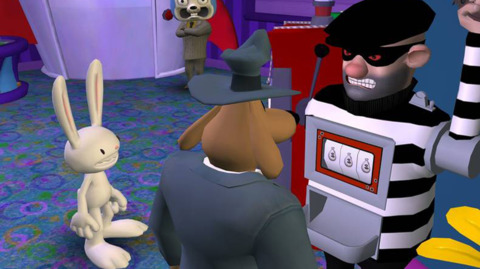
“Since we make games based on licensed IP, we are obligated to make reasonable efforts to protect that IP,” Bruner said. “I think DRM can be a good thing if you focus on the ‘management’ and not the ‘rights’. Steam and Amazon are two great examples of companies that bring a lot of extra value to their digital products. I love firing up a new computer and having all my Steam games available immediately.
“When Steam started, many people pointed to it as an example of everything that was bad about DRM, but it has evolved to an example of DRM done right. Many people actually prefer our games under Steam rather than our own system or retail. I think DRM services like Steam are one of the few growth areas in PC gaming; without these services I’m not sure we would have ever seen games like Portal or Sam & Max.”
Bruner sees DRM as a way to add value to Telltale’s games and disagrees with the issue of ownership that gets brought up in DRM debates.
“There is this undercurrent of entitlement in the argument that is pretty unattractive, and it’d be far more productive if that wasn’t there,” he said. “We don’t look at digital distribution as an extended retail opportunity; we look at it as a whole paradigm. I don’t think our games, which are developed to be downloadable, would work as well in other contexts. Each platform/distribution channel has different DRM requirements, so we end up needing to spend some time integrating each of them.
“Everything gets hacked sooner or later. We generally don’t respond to it at all. Occasionally someone who is reverse engineering things might contact me to discuss details of what they’re doing, which is cool since they are usually big fans of the games, and 100 per cent of the time they have been paying customers. I’m a geek at heart so I don’t mind that at all.”
The other side of the story
Understanding the whole DRM debate is hearing every side of the story. Where publishers and developers agree and disagree with DRM for different reasons, gamers have their own, entirely separate, reasons.
Razor 1911 is perhaps the oldest and most notorious warez and demo group in existence, specialising in the underground distribution of pirated games since 1985. The group was founded in Norway by its original three members, today known as Doctor No, Insane TTM and Sector9. The group has been operating on and off since that time, responsible for demos and cracks since the Commodore 64. Two of its known members have served jail time in the United States for violating copyright laws. Razor 1911 is currently operating, since 2006, and is now among the most prolific groups at cracking new release games including Battlefield 2142, Crysis and Grand Theft Auto IV (all cracked five days before their release). As mentioned in this feature, the PC version of Grand Theft Auto IV includes SecuROM DRM, which the group managed to crack successfully and provide a flawlessly working game for players using cracked versions.
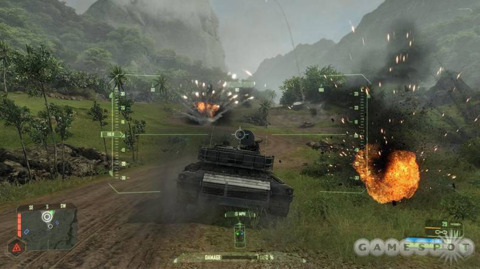
Musician Dubmood is an active member of Razor 1911’s demo division, specialising in making demos to show off programming, artistic, and musical skills. He also runs the Razor 1911 demo-archive, to keep track of all the group’s demo releases over their 24-year history. He says warez groups like Razor 1911 are not intended to spread illegal copies of games.
Click on the Next Page link to see the rest of the feature!
“It’s more of an underground computer culture that has existed as long as I can remember,” he said. “The aim is to strip games of their protections and upload them to internal FTP servers as a competition with other groups who do the same. Razor 1911 does this as a challenge, for fame in a competitive subculture; it has never been meant to be public or serve the public. Each cracked game that ends up on the internet is a result of a leak from this subculture and is not intended. What we do require is a lot more skill than what goes into creating copy protection and DRM.”
Dubmood believes that because of this competition, games will get pirated with or without DRM.
“In my opinion publishers are just there to take large chunks of money from the developers, who are unfairly paid for their work. In the end, this makes the game more expensive for the consumers. Cut [out] the publisher and a game would be more affordable, and more people would buy it, DRM or not," he said.
“By making DRM more restrictive, publishers are just making the need for crack groups like Razor 1911 bigger. It’s a wonderful way of shooting yourself in the foot.”
Although GameSpot AU asked to speak to someone from Razor 1911’s "other" division (the division that cracks games), Dubmood admitted that no member of Razor 1911 who does anything illegal would be willing to speak to the press for security reasons.
“It’s like that. It’s not fun to risk being deported from your country to face 10 years of prison for practicing a hobby. Just look at the old Razor 1911 member who spent two years in isolation with a murderer just because he liked to decrypt computer algorithms.”

Finding a solution
It’s easy to see why no one is willing to admit that the current DRM systems in place for PC games are working very well to serve publishers, developers and gamers alike. So could the answer lie in digital distribution platforms like Steam?
Stardock, a software development company, game developer and publisher, was among the first companies to use a digital distribution platform to distribute software and games. Stardock’s third-generation platform Impulse was released in 2008; the platform lets users purchase and download games, applications and utilities to their account rather than a machine, in order to make it easier to reinstall onto new machines over time if users choose. Impulse is already used to digitally distribute games from publishers like THQ, 2K, Atari and Epic. When it comes to DRM, Stardock’s policy is simple: the less intrusive, the better. The company releases all of its own games without any DRM, and has just implemented a new system on Impulse called Game Object Obfuscation (GOO).
GOO works by putting software inside an encrypted container that provides greater protection for publishers distributing through Impulse, while remaining transparent to users.
“One of the most common complaints about digital distribution is that most DRM ties the game or application to a machine,” says Brad Wardell, founder and CEO of Stardock. “You ‘activate it’, and you get a limited number of future installs. With GOO, the user enters in two pieces of information instead of one: their email address and their serial number. By having the serial number tied to the email address we have a great deal more flexibility in letting people reinstall their program onto other machines they own.
“For gamers, this means they don't have to mess around with being told they can't reinstall their own program because they've run out of activations. For developers and publishers, it provides extremely robust anti-piracy protection without them having to distribute a third-party client or have drivers being installed or other issues," he said.
Stardock’s policy on DRM inspired the company to come up with its own Gamers Bill of Rights--a set of 10 principles written by Stardock in 2008 that details what PC gamers should expect from publishers. This stance, propelled by Wardell’s own direct negative experience with DRM and the rise of Steam, helped lead to the development of GOO.
“If I buy a program and install it on my desktop and then my laptop and then I bring it to my work machine only to be told that I've exceeded my ‘activations’ it frustrates me,” Wardell said.
“The other reason we began aggressively pursuing it is because Valve began to market Steam as a DRM solution by convincing publishers to bundle Steam with their game and use Steam to ‘validate’ the game on installation. As a PC gamer, I have Steam and like it, but I object to new users being forced to become Steam users in order to play a video game I bought at the store or from a third party--not to mention it locks all PC users into a single source. I want there to be competition in the market.”
Wardell believes that DRM has in the past been used to abuse consumers, something that has proven damaging to the games industry.
“DRM hurts the PC game industry because it makes PC gamers jump through hoops that console gamers don't have to. I would say that they [gamers] are totally justified being angered [by DRM]. I don't like paying money for something that I know I could easily have stolen only to be treated like a criminal by the publisher," he said.
“I see DRM as we know it today as a dead end. It's going to go the way of looking up words in the manual of yesteryear. In the future, I suspect that publishers will end up alternating between systems like Valve's Steam and Stardock's Impulse to serve their customers and protect their intellectual property.”

So, while gamers and the industry stand divided over DRM, it’s clear there are some solutions for moving forward. After learning the hard way that gamers are serious about the ownership of the products they buy, publishers are beginning to relax DRM measures and put more faith in consumers. Whether this stance will last in an industry where piracy continues to be a problem is uncertain, but what we do know is that with the continued success of digital distribution platforms like Valve’s Steam and Stardock’s Impulse, there is good reason to believe the future holds something good for both PC gaming and DRM together.
Got a news tip or want to contact us directly? Email news@gamespot.com


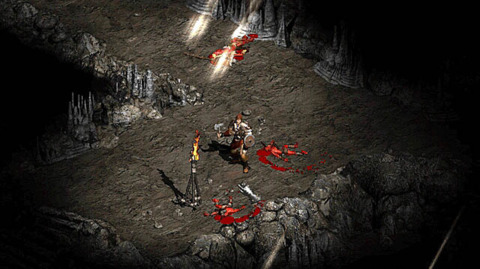
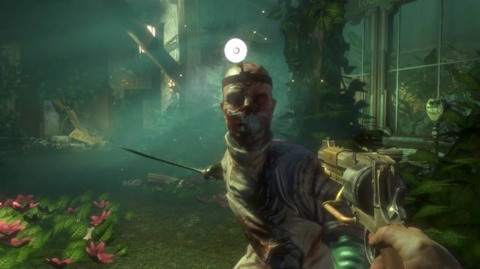
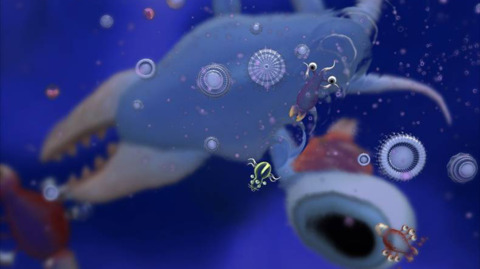




Join the conversation